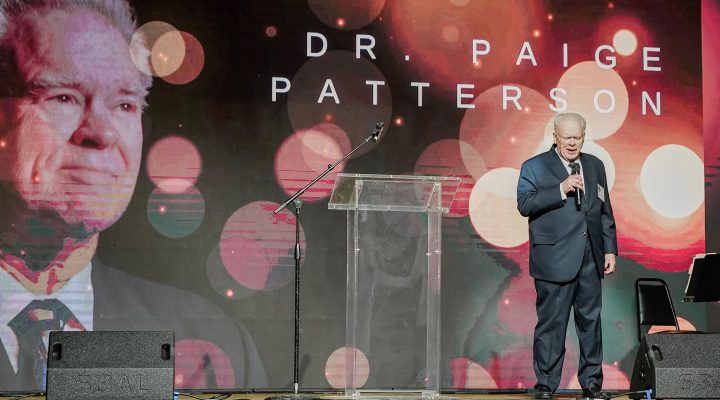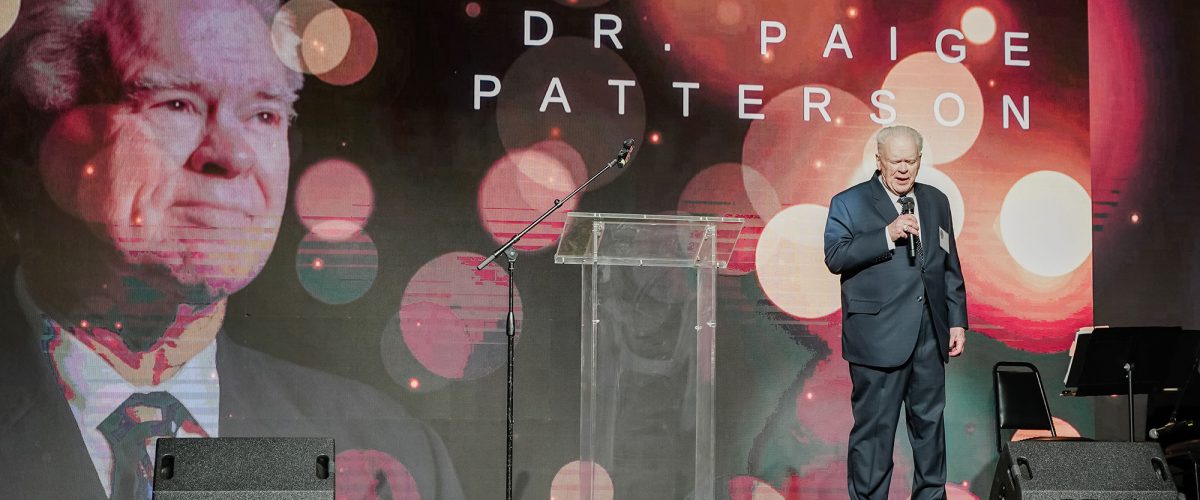What remains of a defamation suit brought by a former student against Southwestern Baptist Theological Seminary and Paige Patterson now comes down to two questions sent from the Fifth Circuit U.S. Court of Appeals to the Texas Supreme Court.
The federal appeals court published an opinion May 3 that keeps alive Jane Roe’s case against the Fort Worth, Texas, seminary and its former president — a case based on the anonymous plaintiff’s claim that she was repeatedly sexually assaulted by a fellow student in 2015 and the seminary and Patterson failed to protect her from the assaults and then allegedly defamed her afterward.
Before deciding on Roe’s appeal of a U.S. District court’s dismissal of her case in April, the Fifth Circuit says it needs advice from the Texas Supreme Court on two questions:
- Can a person who supplies defamatory material to another for publication be liable for defamation?
- If so, can a defamation plaintiff survive summary judgment by presenting evidence that a defendant was involved in preparing a defamatory publication, without identifying any specific statements made by the defendant?
Thus, Jane Roe’s case could survive on appeal and be sent back to district court — depending on the advice to come from the Texas Supreme Court.
Both the Texas Supreme Court and the U.S. Fifth Circuit Court are no strangers to court cases concerning the inner workings of the Southern Baptist Convention.
Both the Texas Supreme Court and the U.S. Fifth Circuit Court are no strangers to court cases concerning the inner workings of the Southern Baptist Convention.
In 2022, the state Supreme Court got involved in a sexual abuse case involving Paul Pressler, Patterson’s partner in conceiving and leading the “conservative resurgence” in the SBC. That ruling, that direct allegations of Pressler abusing a young man could proceed even though the statute of limitations had expired, set new legal precedent for abuse survivors in Texas.
The Fifth Circuit U.S. Court of Appeals is currently considering another defamation case brought by Will McRaney against the SBC North American Mission Board — a case widely believed to hold import for other cases related to the ecclesial abstention doctrine.
Numerous other cases related to sexual abuse claims are winding their way through federal courts and some of those, too, could end up before the Fifth Circuit.
Jane Roe’s case
Roe’s case illustrates one of the most common charges in sexual abuse cases where religion is involved. She claims she was coerced into an abusive relationship with a fellow student who also was employed by the seminary and had access to her apartment. Patterson and his allies accused her of misrepresenting what really happened as rape when it appeared to them to be illicit consensual sex.
The key seminary officials directly involved in confronting Roe were men.
Her story became a central part of what brought down Patterson as seminary president. Trustees said Patterson mishandled this and other allegations of sexual abuse, in addition to complaints about his general leadership and financial accountability. Roe is the student of whom Patterson told a colleague he wanted to “break her down.”
Roe’s case against Patterson and Southwestern almost made it to trial last spring.
Roe’s case against Patterson and Southwestern almost made it to trial last spring. In two separate orders issued a week apart, U.S. District Judge Sean Jordan quashed Roe’s claims of negligence and then dismiss the final defamation charges remaining against the seminary and Patterson, saying he did not believe the accuser had a case.
The second of those rulings was handed down one day after jury selection was scheduled to begin in the federal trial in Dallas.
Now, Roe has appealed the dismissal of the defamation charges.
What the new ruling says
The three judges of the federal court hearing the appeal said they “primarily agree with the district court’s analysis” and do not want to rehash that. They are focused, instead, on two statements Roe alleges to be defamatory.
One was contained in a press release by Patterson’s lawyer who said Roe “had given … many contradictory statements.”
Yes, this could be defamatory, but Roe has not demonstrated actual damage from the alleged defamation, the review panel said.
The second statement came from a letter submitted by a group of seminary donors to the school’s board of trustees. That letter said Roe’s “allegations of rape were false,” that she “had engaged in consensual sexual activities on more than one occasion . . . in public buildings at the seminary,” “that campus security were shown the nude pictures that she texted to the male student (who allegedly raped her),” and that Patterson “desire(d) to meet with her … and attempt to help her recant her false allegations of rape before she continued with such false statements to the police.”
Court documents allege that Scott Colter, then Patterson’s chief of staff, was involved in the production and dissemination of the letter.
According to court documents, that letter was sent from donor Gary Loveless to the trustee Executive Committee on June 29, 2018. Others were enlisted to sign it as well. Court documents allege that Scott Colter, then Patterson’s chief of staff, was involved in the production and dissemination of the letter.
The Fifth Circuit’s query to the Texas Supreme Court explains: “Roe contends that Patterson is responsible for the allegedly defamatory statements in the donor letter described above. Even though Patterson did not sign the letter, Roe argues that he is vicariously responsible for its contents because his chief of staff, Scott Colter, was allegedly involved in its dissemination and preparation.”
Here, the appeals court takes issue with the lower court ruling that found this was not defamatory conduct:
“The summary judgment record contained evidence of Colter’s involvement. Colter was well aware of the donors’ intent to submit a letter to the board. He provided contact information for additional donors who might agree to sign the letter and weighed in on the timing and method of distribution. He was copied on email threads discussing letter drafts. And, according to a letter drafter, he provided ‘additional information about the 2015 event.’ The summary judgment record also contained evidence that Colter undertook this involvement as an agent of Patterson. He helped route the letter to Patterson’s lawyer for approval prior to its distribution and communicated Patterson’s appreciation of the letter after. Patterson and his wife also directly expressed these sentiments to the letter drafters themselves.
“We are persuaded that the summary judgment evidence creates a genuine issue over whether Colter was indeed acting as Patterson’s agent,” the appeals court states. “We would therefore decline to affirm the district court’s judgment on those grounds.”
“There is not direct authority from the Texas Supreme Court on whether a person who supplies defamatory information to a third party is liable for any resulting publication.”
However, “There is not direct authority from the Texas Supreme Court on whether a person who supplies defamatory information to a third party is liable for any resulting publication,” the appeals court writes.
The appeals court panel also expressed concern about whether Roe properly connected the defamatory nature of the letter to her case, a legal technicality for which the Texas Supreme Court’s advice is sought.
“Here, Roe identifies an allegedly defamatory statement—the letter’s references to her rape allegations — and also identifies an alleged speaker — Patterson, through Colter — but she does not identify the speaker as having made the statement,” the appeals court says. “Nor does her evidence identify any statements made by Colter or show that he provided language for the letter, even if it does suggest involvement with the letter generally and the provision of background information about the operative events. Instead, what she seems to argue is that, because Colter helped with the letter, he is responsible for defamatory statements contained therein.
“We are uncertain whether this is enough to assert and maintain a defamation claim under Texas law,” the appeals court concludes in its request for assistance.
It is not clear how long it might take for the Texas Supreme Court to reply to the Fifth Circuit panel and how long it would then take the Firth Circuit to come to a conclusion. For now, the meter is still running for attorneys on both sides of the case, which has been reduced to a fraction of its original filing.
Related articles:
Judge throws out Jane Roe’s defamation case against Patterson and Southwestern Seminary
Abuse case against Pressler may proceed, Texas Supreme Court rules
McRaney hearing explores whether there are any times courts may decide ‘religious’ matters


